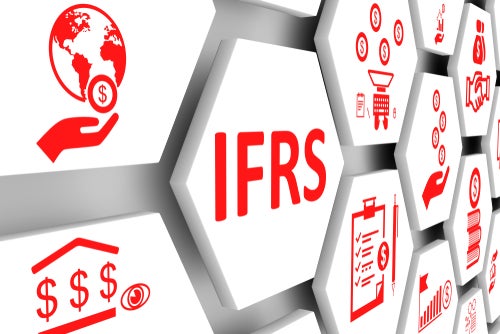
Leaseurope, the European trade federation representing the leasing sector, has called on the International Accounting Standards Board (IASB) to carefully balance the costs to SMEs of bringing leased assets onto their balance sheets against the benefits of doing so
Since early this year, the independent accounting standard-setting body has been consulting on its triennial review, which looks at how to align a simplified accounting standard for SMEs with the full International Financial Reporting Standard (IFRS) standards, this includes rules for lessees such as IFRS 16.
For the last several decades, operating leases have traditionally only been included as part of a company’s expenditure, but the introduction of IFRS 16 by the IASB a couple of years ago, did away with that, “requiring companies to treat operating leases as their own assets and bring them on the balance sheet,” said Julian Rose, a consulting adviser for Leaseurope.
According to a 2015 report by Leaseurope, entitled The Use of Leasing Amongst European SMEs, “leasing is the third most important source of financing for SMEs, that about 40% of SMEs use leases and that 17% of their total investment is financed by leasing.”
Under its current proposals, the IASB paper is looking to apply the IFRS 16 standard for SMEs and the review will hear industry opinions about how this adoption will work in practice. The consultation offers “scope for simplifications and exemptions to the rules,” said Rose.
While IFRS for SMEs is not approved for use in Europe, European national accounting standard setters often refer to changes in IFRS for SMEs when thinking about new versions of their own SME accounting rules, Leaseurope said in a statement.
How well do you really know your competitors?
Access the most comprehensive Company Profiles on the market, powered by GlobalData. Save hours of research. Gain competitive edge.

Thank you!
Your download email will arrive shortly
Not ready to buy yet? Download a free sample
We are confident about the unique quality of our Company Profiles. However, we want you to make the most beneficial decision for your business, so we offer a free sample that you can download by submitting the below form
By GlobalDataRose said: “What Leaseurope is trying to do is emphasise to national standard setters that there’s a need for careful cost-benefit analysis before making any assumptions that putting operating leases on an SME’s balance sheet is logical.
Leaseurope said in a statement: “Our response notes that although the inclusion of certain simplifications to IFRS 16 in the proposals is helpful in principle, it is no substitute for full analysis before regulation that is clearly designed for larger companies is imposed on smaller firms.
“Without this, the IASB would clearly not be following the ‘think small first’ SME regulation principle.
“Working with its global partners, Leaseurope has been lobbying on the IFRS 16 lease accounting rules since 2006. This was finally approved for use in Europe in October 2017 and has been effective from January 2019.”
Leaseurope has issued a joint response to the IASB’s Comprehensive Review of the IFRS for SMEs Standard, together with the Equipment Leasing and Finance Association (ELFA) in the US and the Canadian Finance and Leasing Association (CFLA).
Request-for-information-comprehensive-review-of-the-ifrs-for-smes-standard
IFRS 16 & ‘right-of-use’
According to UK asset finance provider Maxxia: “IFRS 16 takes a totally new approach to accounting for leases, called the ‘right-of-use’ model.
“This means that if a company has control over, or right to use, an asset they are renting, it is classified as a lease for accounting purposes and, under the new rules, must be recognised on the company’s balance sheet.
“This no longer allows for significant financial liabilities to be held off-balance sheet, as permitted for certain types of leases (operating leases) under the previous rules.
“The objective is to ensure that companies report information for all of their leased assets in a standardised way and bring transparency on companies’ lease assets and liabilities,” the independent lessor said on its website.
According to its website, Leaseurope represents 45 associations throughout Europe representing either the leasing, long term and/or short term automotive rental industries. The trade body represents around 1,700 leasing companies across Europe, with over 70,000 employees and represents approximately 91% of the European leasing market.






